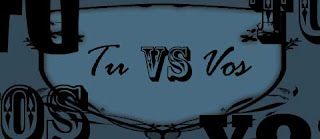1
Accelerated Spanish: Learn Spanish online the fastest and best way, by Master of Memory
Timothy Moser: Spanish coach, mnemonist, language hacker, and accelerated
Learn Spanish with mnemonics! Through Accelerated Spanish, Master of Memory presents the fastest way to learn Spanish using timeless accelerated learning principles. Building from a solid foundation, this show will teach you not just to memorize vocabulary at unbelievable rates, but also to speak Spanish idiomatically. If you're looking for the best way to learn Spanish online for free, you've come to the right place.
…
continue reading






